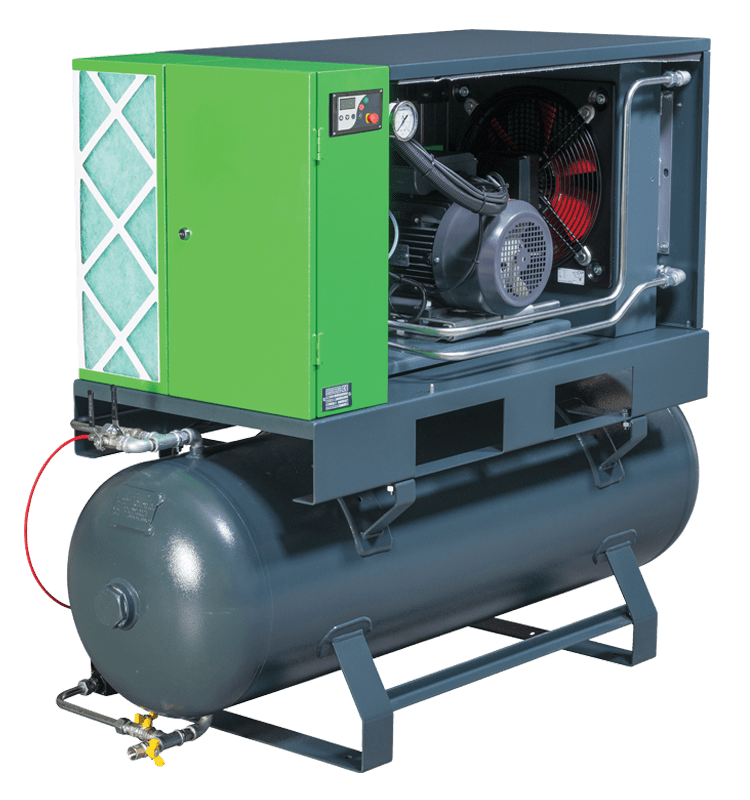Every business owner knows that the right tools can make a world of difference in their operations. If you’re looking for a reliable and efficient compressor, you might be considering a fixed speed screw compressor. Although fixed speed compressors might be the perfect choice for some businesses, they may not be ideal for others.
In this blog post, we’ll take a closer look at the pros and cons of fixed speed screw compressors to help you determine if they’re right for your business.
Fixed Speed Screw Compressor- What is It?
A fixed speed screw compressor is a powerful machine used for various industrial applications. It operates by compressing air, lubricating it, and channelling it through piping systems. The compressor features two rotors that rotate in opposite directions, creating a volumetrically efficient system responsible for high-pressure airflow. While it may seem complex to some, understanding its operation and applications can be beneficial in various industries.
The fixed speed screw compressor serves many functions, including powering pneumatic tools, cooling industrial processes, and providing airflow to food processing facilities. Its reliability and efficiency make it a vital component in many industries, ensuring that processes run smoothly and efficiently.
Advantages of Fixed Speed Screw Compressors
Lower cost
Fixed speed screw compressors have a lower upfront cost compared to their variable-speed counterparts. With a fixed speed compressor, you’ll only pay for what you need – no more, no less.
Reliable
Fixed speed compressors typically have fewer moving parts than their variable-speed counterparts. This means that there’s less chance of breakdowns or maintenance issues. This can save your business money in repairs and replacement costs down the line.
Easier to maintain
Fixed speed screw compressors are generally easier to maintain than variable-speed compressors. This is because there are fewer parts to maintain, and the compressor runs at a consistent speed, making it easier to predict when it will need maintenance.
Disadvantages of Fixed Speed Screw Compressors
Energy inefficient
The main disadvantage of fixed speed screw compressors is that they’re not as energy-efficient as variable-speed compressors. This is because they run at a fixed speed, which isn’t always needed, resulting in a waste of energy.
Less flexibility
Since fixed speed screw compressors run at a fixed speed, they’re less flexible than their variable-speed counterparts. This means that they may not be able to adapt to changing demands in your business, resulting in wasted energy and lower efficiency.
Environmental concerns
Due to their lower energy efficiency, fixed speed screw compressors may not be as eco-friendly as variable-speed compressors. They emit more energy, which could have an impact on your carbon footprint.
Conclusion
Overall, a fixed-speed screw compressor might be a good choice for SMBs who require less flexibility and have lower energy needs. They’re also ideal for businesses on a budget, as their upfront costs are lower, and maintenance is relatively straightforward. However, if you need a more adaptable compressor that is energy-efficient and eco-friendly, you may want to opt for a variable-speed compressor. Whatever your business needs might be, be sure to weigh the pros and cons carefully before making your final decision.

